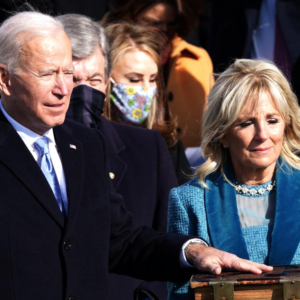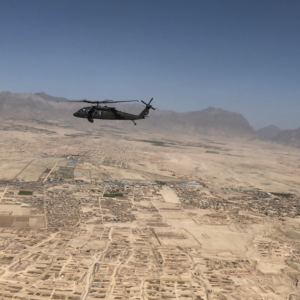On December 4, 2013, in facing what he called “the defining challenge of our time,” President Obama passionately outlined his economic blueprint for the rest of his presidency: closing the inequality gap and lifting marginalized communities from the throes of poverty. Many years removed from Lyndon Johnson’s Great Society, our leaders are still talking about poverty. We all know this is a problem and workers are making their voices heard over their circumstances. Last week, fast-food workers across the country protested the current federal minimum wage and Wal-Mart employees staged Black Friday demonstrations and strikes. But can poverty, and the mechanisms to help solve this challenge, be corrected to lift all of society into a new era of prosperity?
Yes, there is poverty all around us. But, how poverty looks in America today has changed drastically since the passage of the Personal Responsibility and Work Opportunity Act in 1996 (a.k.a. welfare reform). They are not “welfare queens” driving Cadillacs as stereotyped during the Reagan era; instead, they are people who are working one, two or even three hourly wage jobs at any one time. They are forced to work multiple jobs because of one clear point: you cannot live on the minimum wage. To make ends meet, particularly in urban areas, the working poor are working hard, but struggling to lift themselves above the poverty line.
Given this, what can we do to lift hard-working people out of poverty? One of those mechanisms is raising the minimum wage. The last time the minimum wage was raised by the United States Congress was over six years ago to $7.25. At the current wage rate, if a person worked a standard 40-hour week, their income would be $290 per week ($1,160 monthly) before income taxes. To feed a family of four on a healthy diet, it would cost roughly $289 per week, eviscerating their income before taxes. But what about shelter, prescription drugs, and all other basic necessities people need to live? This forces people to make trade-offs and makes a single minimum wage job insufficient to afford all basic needs. But even working one or two additional minimum wage jobs will not cover the costs for all of these needs.
The working poor know this because they live with it. They are not staying quiet about it anymore and they are organizing their communities. With each passing day, the calls are getting louder for raising the minimum wage in this country. But who is listening to them? President Obama has indicated that he supports a Senate measure that would raise the minimum wage to $10.10 an hour, which still falls short of the fast-food workers’ demands. The dysfunction of the United States Congress has clouded their senses and judgment on what to do for middle-income people, let alone the poor. At this moment, the prospects of enacting a legislative remedy to raise the minimum wage are little to none.
Dysfunction and policy paralysis aside, raising the minimum wage has long been a contentious issue. How is giving people a chance to lift themselves out of poverty controversial? The late Senator Edward Kennedy asked an important question in the last minimum wage debate: “What is the price?” What is the price for not lifting Americans out of poverty? Do we not have a moral obligation to care for the defenseless? For me, as a Catholic, it is the moral imperative of our time. With more people becoming poor or poorer each day, we need to act on this issue. To let this trend continue, the United States would be committing an affront to American values. We must care for our fellow brothers and sisters who find themselves standing on the margins of society. Our elected leaders cannot sit idly and expect the miraculous eradication of poverty. These issues – poverty and the minimum wage – require decisive and swift action.
President Obama has made his intentions clear to resolve the issues of poverty and income equality. But he is only one person. It will take the work of all Americans – elected leaders and citizens alike – to act to solve “the defining challenge of our time.” If we fail, we will be failing in our duty of care to the common good.





